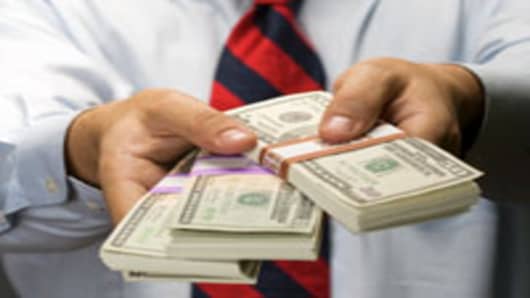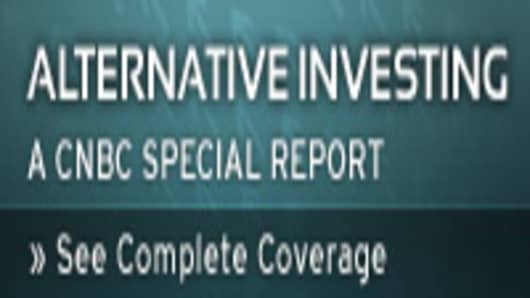Halloween is fast approaching, so no one should be surprised to hear spine-tingling tales of myths and legends intended to give you the willies.
So let's gather around the campfire, and listen through crossed fingers at nightmarish horror stories of...the pending collapse of the dollar.
S'mores anyone?
Although it inexplicably strengthened a bit this week — putting fright in the minds of equity traders — the U.S. dollar has certainly been under pressure this year, helping to inflate prices for some dollar-denominated assets and commodities — like oil and gold.
- The Dollar Is Over-Owned: Pimco's Bill Gross
- Pause in Carry Trades Could Boost Dollar
One blood-curdling myth of the season is that the U.S. has had a policy of seeking a "weak dollar" -- the Poltergeist equivalent of going into the light. The story goes that despite repeated assertions that a "strong dollar is in the nation's interest", U.S. officials wink and nod, secretly seeking a weaker currency to promote exports, inflate away debt, whatever.
In the Bush Administration, I worked with three Treasury secretaries, four directors of the National Economic Council, four chairmen of the Council of Economic Advisers, two Federal Reserve chairmen, other senior economic officials, and the President himself. None believed a weak dollar was good for the country. None believed the U.S. should take actions to weaken the dollar. None believed it possible to devalue our way to prosperity. No winks. No nods. No Jekyll-and-Hyde transformations. (Note to David Malpass.)
In fact, when a U.S. official so much as whispered some benefit to the U.S. economy of a weaker currency, he was quickly hushed and scolded, and someone (frequently me) would go out and reiterate that U.S. dollar policy hasn't changed, a strong dollar is in the nation's interest.
While I haven't worked directly with current Treasury Secretary Geithner nor NEC Director Summers, my discussions with Administration officials confirm for me that they do not seek a weaker dollar, either, and I've seen no evidence to contradict that view.
The Obama Administration has policies that would result in a weaker dollar, and some may even recognize a short-term benefit, but not policies actually aimed at seeking a lower valued currency.



